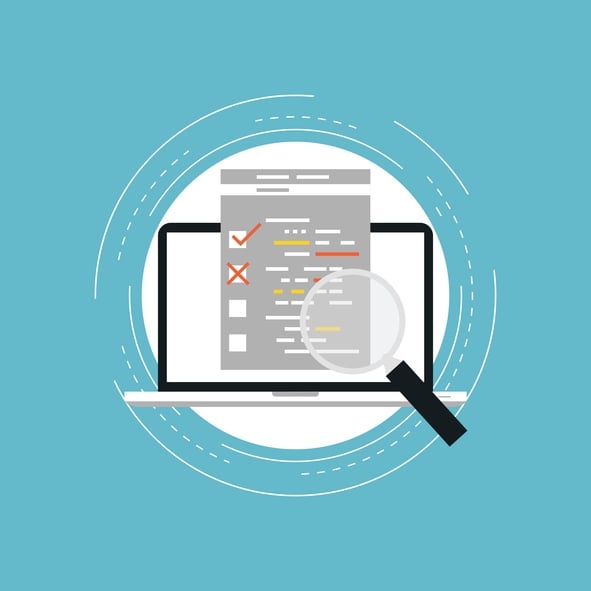You have /5 articles left.
Sign up for a free account or log in.

iStock/Blossomstar
A multitude of career assessments is available today. Some assess your abilities, some test your personality, others evaluate your interests and another set helps gauge your workplace values.
You can access these assessments in several ways. Many college career services departments have a select portfolio of assessments that students and alumni can use. Certified test administrators and career coaches can also offer you the ability to complete the full assessment and receive a detailed interpretation of your results. Some assessment organizations provide access to their total portfolio of assessment instruments as part of their library of career assessment books.
The largest comprehensive resource for such assessments is online. In all cases, your motto should be the Latin phrase “caveat emptor.” Make sure to research the creators, publishers and validity testing done for these instruments before you accept their results at face value. Some of the online tests are scaled-down versions of the full assessments. While those free web-based tests may provide you with some interesting insights, the full assessments that are available through test administrators have typically been through rigorous validity testing.
You may be wondering how an assessment profile can help you with your career. The answer depends on the instrument being used and how the test results are interpreted. These assessments can guide you to your best career choices, help you select a position or organization that fits your personality and work style, improve your leadership skills, and strengthen your communications with others. You can address such topics through one or more of these assessments.
Below is a summary of several of the more popular assessments that are available, what they measure and how they could be useful to you.
The Clifton StrengthsFinder. The Clifton StrengthsFinder was produced based on over 40 years of research that the Gallup Organization and psychologist Donald O. Clifton conducted. The results of this instrument provide the user with a set of strengths that can be applied to both your career and academic pursuits. Once you have completed the assessment, you are provided with your set of strengths from among 34 descriptors. Your strengths are a combination of your personal set of talents, knowledge and skills. Some of these descriptors include empathy, individuation, focus and context. The Gallup Organization’s research has shown that the people who actively use their skills are much more likely to be engaged in their careers and have an excellent quality of life. Your CSF assessment data can be applied to work, starting your own business, leadership and family life.
To determine your CSF results, you must purchase one of the strengths-based books, which are available in print or electronically. Each book has an access code to the test instrument. These Gallup Press titles include StrengthsFinder 2.0 (2007), Strengths Based Leadership: Great Teams, Leaders and Why People Follow (2008) and Entrepreneurial StrengthsFinder (2014).
Myers-Briggs Type Indicator. The Myers-Briggs personality assessment puts Swiss psychiatrist and psychoanalyst Carl Jung’s theory of personality types to everyday use. The completed instrument places you in one of 16 personality types based on your preferences among pairs of characteristics. Your MBTI personality type is a four-letter code that explains how your preferences combine to form your interests, views, motivations and actions. You can view your choice of career, the degree of position fit and your level of success through the lens of your personality type.
Only someone who is MBTI certified can perform a full MBTI evaluation and analysis, but many abbreviated adaptations of the MBTI instrument are available online at no cost. Once you have your four-letter code, you’ll also find multiple resource books available that can help you fully understand and use this assessment instrument. These titles include Do What You Are: Discover the Perfect Career for You Through the Secrets of Personality Type (Little, Brown and Company, 2014), Type Talk at Work: How the 16 Personality Types Determine Your Success on the Job (Delta, 2002), How You’ll Do Everything Based on Your Personality Type (Thought Catalogue Books, 2015) and The 16 Personality Types: Profiles, Theory & Type Development (Andrew Drenth, 2017).
Holland Code. The Holland Code instrument (also known as the RAISEC test) is based on the work of John Holland. He theorized that your career choices can be based around a combination of six personality types and believed that the more you can express your personality at work, the higher your career satisfaction. The six types in the Holland code system are realistic, investigative, artistic, social, enterprising and convention. Your Holland code would be a combination of two or three of these types. The Holland code is the basis for other assessment instruments including the Strong Interest Inventory and the Self-Directed Search. There are a limited number of books available that help interpret the Holland code. These titles include 50 Best Jobs for Your Personality (Jist Works, 2012), Dictionary of Holland Occupational Codes (Psychological Assessment Resources, 1996) and CareerCode: Know Your Code, Find Your Fit (Amazon Digital Services, 2012).
Strong Interest Inventory. The Strong Interest Inventory evaluates your work and career interests instead of your personality, skills or values, using the Holland codes as a basis for its assessment. The six areas of analysis are occupations, subject areas, activities, leisure activities, people and your characteristics. The SII has been updated multiple times to create an in-depth and contemporary career assessment. You can use your test results to help you determine the best career choices as well as to better understand your strengths and blind spots. This assessment requires a certified facilitator to administer the full version. Some of the resources available about the SII include Using Your Strong Results to Manage Your Career an Strong Interest Inventory User’s Guide (Consulting Psychologists Press, 1992).
The Big Five Personality Traits Model. The Big Five (also known as the Five-Factor Model) originated from combining the results of two different research teams. Their work determined that there are five main factors that determine human personality. Your results will rank where you fall on the dimensions of emotional stability, extroversion, openness, agreeableness and conscientiousness. These results can be used to better understand your work performance, organizational citizenship and job fit. Books about this assessment include Personality Development Across the Lifespan (Academic Press, 2017), The Owner’s Manual for Personality at Work: How the Big Five Personality Traits Affect Your Performance, Communication, Teamwork, Leadership and Sales (Bard Press, 2000), and The Oxford Handbook of the Five Factor Model (Oxford University Press, 2017).
DiSC. The DiSC assessment was developed based on the work of William Marston. Each formal version of the DiSC assessment measures your patterns of behavior based on preferences and priorities. The theory behind this test is that everyone has a dominant characteristic or reference point. The four DiSC characteristics are dominance, influence, steadiness and conscientiousness. There are multiple versions of this assessment: DiSC Classic is available in three versions, while DiSC Everything is a series of more comprehensive assessments that focus on work, sales, management and leadership. Each version of the DiSC assessment offers a different reference point to interpret your personality and how to use this information in your career and personal life. Several books are available that discuss the DiSC assessment in more detail. They include Positive Personality Profiles: D-I-S-Cover Personality Insights to Understand Yourself and Others! (Voyages Press, 2005), DISC -- Basic Knowledge: Get to Know the Basics About DISC (CreateSpace, 2016), and Everything DiSC Manual (Wiley, 2015).
I’ve taken each of these assessments multiple times over several decades, and they continue to provide consistently similar results. The instrument that is my favorite, and that I go back to most frequently, is the Myers-Briggs test. I have a worn early edition of Do What You Are: Discover the Perfect Career for You Through the Secrets of Personality Type in my library. This book repeatedly comes off my bookshelf more than any other. It provides a clear understanding of the work styles and environments that best fit a given personality type. The MBTI assessment and this book have provided succinct insight for me over time. The book continues to help others as I loan it out. In fact, it’s on loan right now in North Carolina.
If you have a passing interest in a specific instrument, you may decide to take one or more free online tests to satisfy your curiosity. Or you may decide to invest money in purchasing a complete assessment and professional interpretation. No matter which path you take, each method can provide you with interesting insights. Be honest when taking your assessment(s) and weigh the information obtained carefully. There is likely a nugget of solid gold in the results that may help you as you manage your career.








